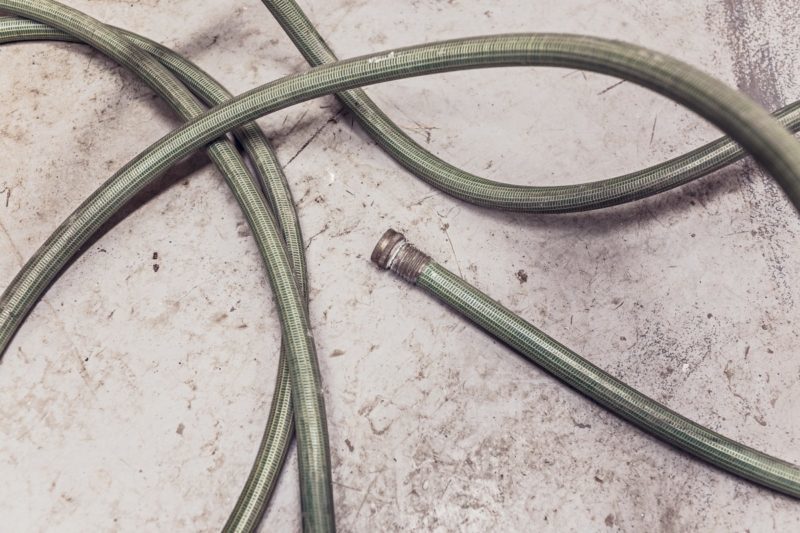Are you curious to know what does my pressure washer loss pressure? There are a few reasons for that, including the damaged water pump, worn-out nozzle, faulty unloader valve, and engine problems.
By using a pressure washer, huge clean surfaces efficiently and speedily. However, one of the most typical problems that pressure washer owners face is losing pressure over a period. It’ll become hard to remove dust and wash a surface efficiently if the pressure washer isn’t spraying water with appropriate pressure.
Fortunately, most of the reasons for low pressure listed below are simple to correct, though a few may require expert assistance. It might be aggravating to have a pressure washer that doesn’t provide as much pressure as you’d like or has completely lost pressure. As a result, we’ll go through the many causes of loss in pressure in the pressure washer and what you can do about it. Let’s have a deep look at it!
What Does Pressure Washer Loss Pressure?
It happened that over time, the pressure washers loss the pressure. And you must think, what does my pressure washer loss pressure. We know that you’re in search to find the answer. Below we have listed all the causes of this problem; let’s dig them one by one!
#1. Blocked or damaged water supply hoses
It should be unsurprising that pressure washers need a lot of water to perform correctly and create a consistent stream of highly pressured water. A reasonable pressure washer machine requires approximately 4 liters of water every min to operate correctly. In reality, if the pressure washer isn’t producing enough pressure, the intake hose supply hose should be checked first.
#2. Incompatible supply hose or inlet
The pressure washer supply hose’s diameter is critical and, therefore, can’t assume to have a similar diameter hose on all types of pressure washers. If you’re using a pressure washer intake hose that is too thin or too broad, it will have an inaccurate quantity of water to the machine, lowering the pressure.
#3. Damaged Supply or inlet hose
If the pressure washer’s inlet hose has had any cracks or breaks, the water might leak, resulting in inadequate water being provided to the pump, resulting in reduced water pressure. It is relatively unusual for a pressure washer intake line to fracture or crack because of the high pressure it must handle. You may fix the supply hose yourself if the breakage isn’t severe and the fractures are not scattered throughout the height of the line. However, if the fractures are extensive, buying an additional hose identical to the previous one is advisable.
#4. Blocked clogged inlet filter or water inlet hose
If the water supply used to fill the power washer is dirty, dust might clog the inlet filter. These are generally found within the connection point between the water supply line and the pressure washer system. It has to keep dust out of the pressure washer pump, which might cause harm. Aside from a clogged input filter, a clogged hose can also occur, and all of these obstructions are relatively simple to repair.
#5. Worn or clogged nozzle
Another typical reason for low pressure in a pressure washer is a broken or clogged nozzle, which hinders the appropriate passage of water, lowering the pressure. A clogged nozzle could cause low pressure or pulsing water spray. The nozzle’s hole has been relatively small, so the pressure will drop dramatically if it becomes clogged. Likewise, if the pressure washer’s nozzle isn’t changed for a lengthy term, it will be worn out, and the gap will widen with time, resulting in a pressure reduction. If your pressure has not been used regularly or isn’t so old, an obstructed nozzle might be the source of low pressure, particularly if the water spray is pulsing or erratic. Fortunately, unclogging or unblocking a nozzle is a reasonably straightforward procedure. You may attempt it before changing the nozzle since a nozzle can get clogged even if it is not broken.
#6. Incompatible water temperature
Pressure washers come in two varieties: hot water and cold water. And they can only function correctly if they are given the proper water temperature. Your pressure washer will not deliver ideal water pressure if you use the improper water temperature. Furthermore, the pump might be damaged if improper temperature water is utilized in the pressure washer. A heated water pressure washer cannot be converted to a cooler water pressure washer; likewise, a cold water pressure washer can,t be converted into a hot one.
#7. Broken pump
The pressure washer’s pump is responsible for pressurizing the water that enters the machine. Because of inappropriate use, the pressure washer pump can grow sluggish and even break, resulting in reduced pressure. A pump might fail to owe to a lack of appropriate water supply or idle mode for an extended time. You may also be interested to know about installing a new pressure washer pump.
It’s A Wrap!
We are happy to know that you all will learn what does my pressure washer loss pressure. We’ve discussed all the reasons for this problem; by understanding them, you can quickly figure out why the pressure loses from the pressure washer. Click on these links to read related articles; know how to start a Briggs and Stratton pressure washer and how to start a Simpson pressure washer. Thank you, friends, for being with us at the end!

